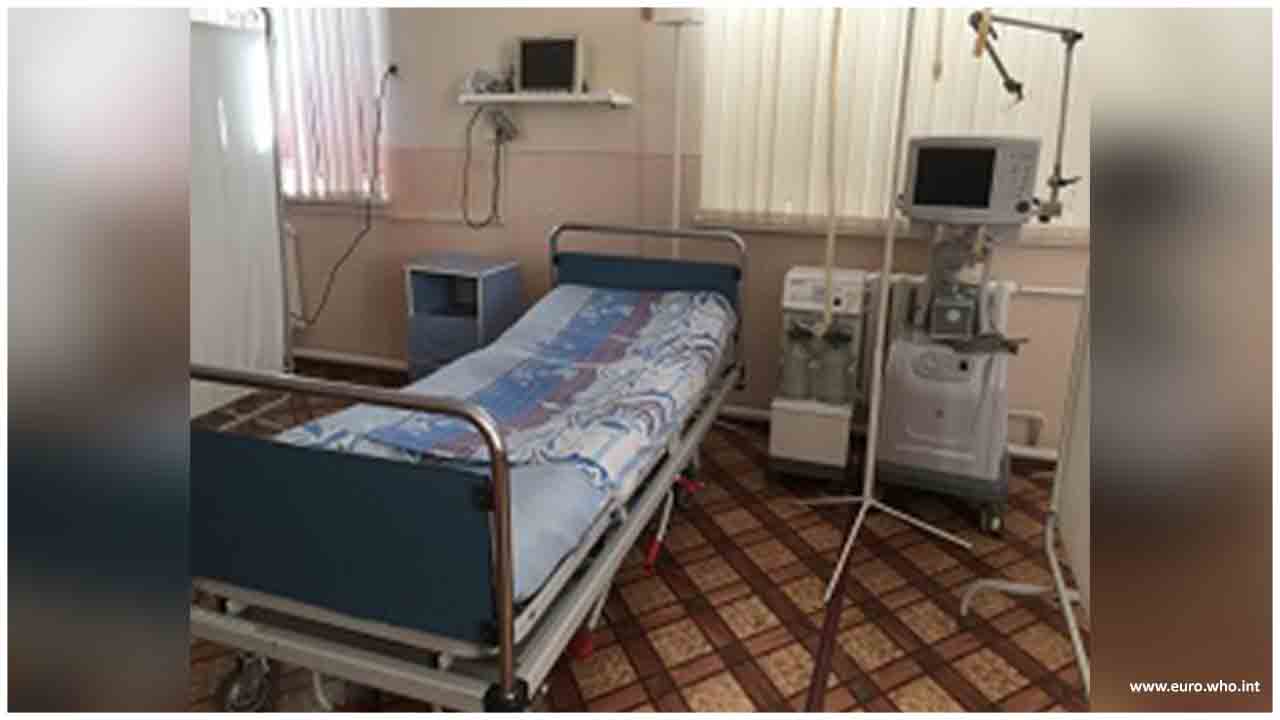A new WHO survey looks at the extent of the disruption of services for the prevention and treatment of non-communicable diseases (NCDs) such as cardiovascular diseases, diabetes, cancer, and chronic respiratory diseases during the COVID-19 pandemic. To mark the survey’s preliminary results, a new series of stories from the WHO European Region shares experiences of health workers and patients in managing these conditions.
Protecting against the disruption of services
Within the Region, 38 of the 53 Member States responded to the survey. Three quarters (74%) of the responding countries reported that they have included continuity of NCD services within their COVID-19 response plans, but the survey revealed that they have been able to protect these services to different extents.
The survey showed that in 81% of responding countries rehabilitation care has been completely or partially disrupted, and in 47% of responding countries palliative care has been completely or partially disrupted. Additionally, while two thirds (63%) reported that services for cardiovascular disease emergencies have not been disrupted, this was only the case for a quarter (24%) of hypertension management services.
A story from Italy illustrates how countries have been working to maintain services. A hospital in the Lazio region treated both COVID-19 and non-COVID-19 patients by dividing its emergency department into two separate areas. It recruited additional health personnel and filled prescriptions remotely to reduce hospital traffic and risk of transmission.
In line with strategies to preserve clinical care capacity for COVID-19 patients and as part of readiness and response actions, countries facing community transmission of the virus appear to have sought to limit facility-based care that was nonessential or that could be reprioritized. For example, elective care has been canceled in two thirds (63%) of countries, and population screening programs have been temporarily suspended in 61% of cases.
Yet this raises broader concerns. Repurposing of staff may mean that some outpatient services are unable to run. Three fifths (61%) of countries also reported a decrease in outpatient volume due to patients not coming for their appointments. This could be due to several reasons, such as difficulties traveling across a city or country to access care or fear of infection.
A story from Kyrgyzstan illustrates this problem on the ground. A 67-year-old woman in Talas displayed symptoms consonant with breast cancer, so her family doctor referred her to the National Oncology Centre in Bishkek. Due to strict restrictions on movement and hotels being shut, she has had to postpone her visit until lockdown measures are eased.
Ensuring continuity of care through digital technology
In response to the restrictions, countries are putting in place a range of mitigation measures by adapting service delivery platforms. These include telemedicine and the use of digital technologies. A quarter of countries also reported novel supply chains and/or dispensing approaches for NCD medicines.
A story from Portugal demonstrates how teleconsultations for the scheduled appointments of diabetic patients have been ensuring continued communication and care. “I was quite surprised to see how well it worked from the start,” notes one physician. “It was possible to have effective phone consultations and plan the intervention of the nurse and dietitian. I hope we can apply part of this for the future.”
Given how this new approach has been accepted by patients and health workers, the service in Portugal hopes that new channels for communicating with patients and the public can be sustained in the long term as they continue adapting care for people living with diabetes.
New approaches for a new reality
Within the survey, countries indicated areas in which they would value further support from the WHO. A number of these areas are already being implemented. In addition to its work on emergency preparedness and response and its support to strengthen infection prevention and control capacities, WHO has developed a set of technical guidance documents on maintaining essential health services.
WHO has also set up a series of webinars on clinical management and infection prevention and control measures in the context of COVID-19, and on practical peer-to-peer support to deliver services for non-COVID-19 patients with NCDs.
On 28 May 2020, WHO held another webinar in a series to facilitate the exchange of country experience. It gathered around 50 ministries of health officials, national authorities, and clinicians from Kyrgyzstan, Tajikistan, and Uzbekistan to learn from the experience of experts in Italy and the Russian Federation in delivering acute care and rehabilitation for heart attacks and strokes.
Similar events will be held across the Region on a range of topics, such as diabetes and cancer care, to support countries and systems in meeting shared challenges in a time of COVID-19.

 A new WHO survey looks at the extent of the disruption of services for the prevention and treatment of noncommunicable diseases
A new WHO survey looks at the extent of the disruption of services for the prevention and treatment of noncommunicable diseases 









.jpeg)




.jpeg)

.jpg)













